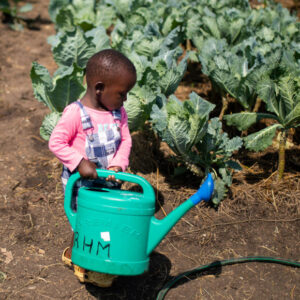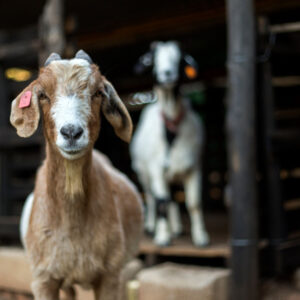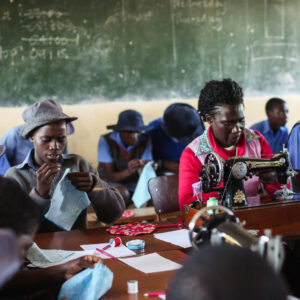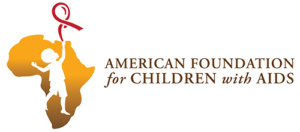The American Foundation for Children with AIDS provides help to infected and affected HIV+ children and their caregivers in Sub-Saharan Africa by promoting self-reliance and sustainability. What started as a response to the urgent and critical need for HIV medication distribution for infected children and guardians has since grown into community driven livelihood programs that alleviate extreme poverty, getting to the core of what spreads HIV/AIDS in communities – lack of choice and desperation.
 We know that when we empower women with training and the tools they need to support themselves, we see systemic changes that set the groundwork for strong communities to continue to thrive. Cases of HIV/AIDS start to diminish, women and children are able to feed themselves, make money by selling their goods, they stimulate the local economy, they continue their educations, and they can pay for the medical care that they need in order to remain strong and healthy,
We know that when we empower women with training and the tools they need to support themselves, we see systemic changes that set the groundwork for strong communities to continue to thrive. Cases of HIV/AIDS start to diminish, women and children are able to feed themselves, make money by selling their goods, they stimulate the local economy, they continue their educations, and they can pay for the medical care that they need in order to remain strong and healthy,
Thousands of orphans are in AFCA’s care. Most of them have lost one or both of their parents to disease and many of them were born with HIV themselves, left to grapple with their own health challenges. Groups of young children can be found living alone, often minors will have the responsibility of looking after younger siblings or they are under the care of elderly women, who also struggle with making ends meet. Life is hard with limited resources and with no income to purchase seeds or livestock or to obtain training in order to have the skills necessary to survive. The luckiest of orphans land safely in the hands of our partner orphanages and centers where they are loved and cared for, and learn skills in order to make a life for themselves. It is our mission that no child with AIDS is left behind in the communities we serve, and it is with sustainable livelihoods that we look to incorporate long term support.
What is a sustainable livelihood?
Essentially, the meaning of sustainable livelihoods is the ability for someone to provide for themselves longterm. It also refers to “the ability to undergo external shocks or stresses and recover from such traumas through maintaining or improving one’s livelihood.” It’s a people and community centered approach that looks to develop lasting solutions to poverty and to strengthen a community’s resilience. Sustainable programs are at the heart of AFCA’s work, both for families and for institutions.
Examples of sustainable livelihood programs
Some ongoing successful programs that we have worked to fund and implement with families in areas where HIV/AIDS is rampant include, but are not limited to the following programs. Ongoing monitoring of the programs happens continually, with, reporting measures and results recorded in order to ensure long term success. The gift of a solar lamp and a water filter accompanies each one of these programs so that families immediately stop suffering from waterborne illnesses and also benefit from light in their homes.
 Animal Distribution
Animal Distribution
Indigenous animals such as chickens, pigs, hens, goats and rabbits are given to an orphan household in order to improve nutritional security with the production of milk, eggs and meat. This also allows those with AIDS to continue to take their life saving medication, which needs to be taken with food. With the addition of veterinary training and kits, beneficiaries learn what it takes to keep animals healthy and learn to breed their stock in order to generate income. Nothing goes to waste, as even manure is saved to fertilize gardens. Multiplication centers are also set up to assure healthy animals are bred and raised to support these programs.
Bee Keeping
Distribution of hives and training has also proven to be a useful and effective way of strengthening the local economies, providing a nutritional, calorie dense food source for beneficiaries and an opportunity to sell honey to local markets. The added benefit of supporting local pollinator populations assures the long term viability of gardens, crops and orchards.
Personal Gardens
Year over year, we watch the benefits of our garden projects grow. Families are given seeds, tools and training in order to grow personal gardens full of nutritional value. Tomatoes, kale, onions, potatoes, peppers, amaranth, eggplant, cucumbers, and many other varieties of vegetables and fruit are given to families. Also, families receive larger amounts of peanuts, beans, corn, and soy to plant so they can have larger fields which are capable of feeding their children, animals and themselves, while leaving a portion of the seeds for next year’s planting. Some extra food is sold at the market, providing income for the families.
 Tailoring
Tailoring
Learning to sew is a skill that offers income for women and their families. Women attend training for 10 months and then go on to rent sewing machines to set up their own businesses. They offer services like tailoring dresses and suits for holidays or celebrations as well as children’s school uniforms. Tailoring is another way that women are provided choice and empowered to use their skills to make income.
Hairdressing
Training in hairdressing is another way that women can learn a skill that provides income for her family. An opportunity at earning a living with dignity, she also provides the service of making others feel good and confident about their appearances, which we can all agree, can offer a boost of morale and confidence.
When you make the choice to donate to the American Foundation for Children with AIDS, you are making the choice to support lasting, long term, community driven, sustainable livelihood programs that stop the cycle of extreme poverty, and the spread of HIV/AIDS.

